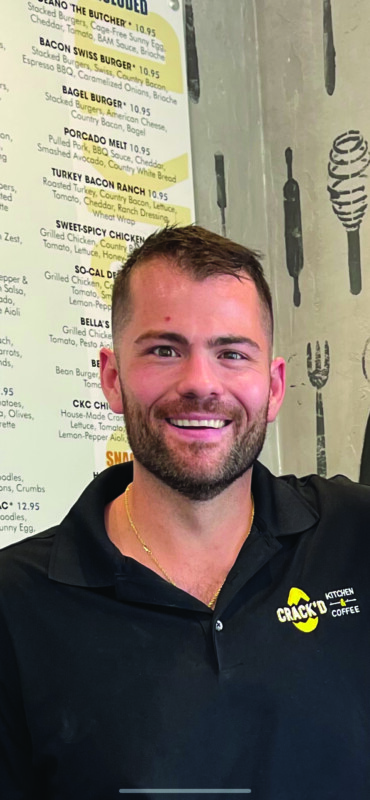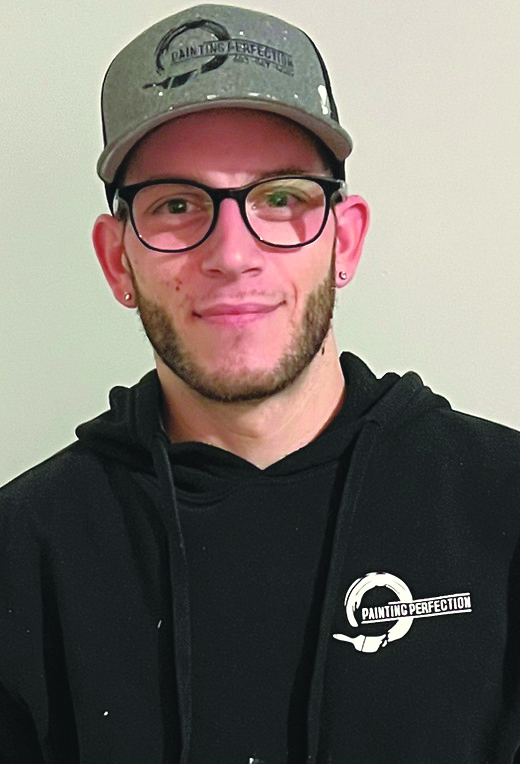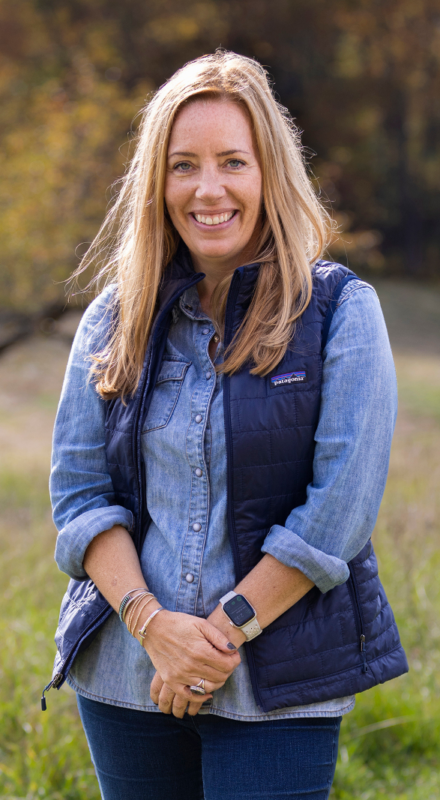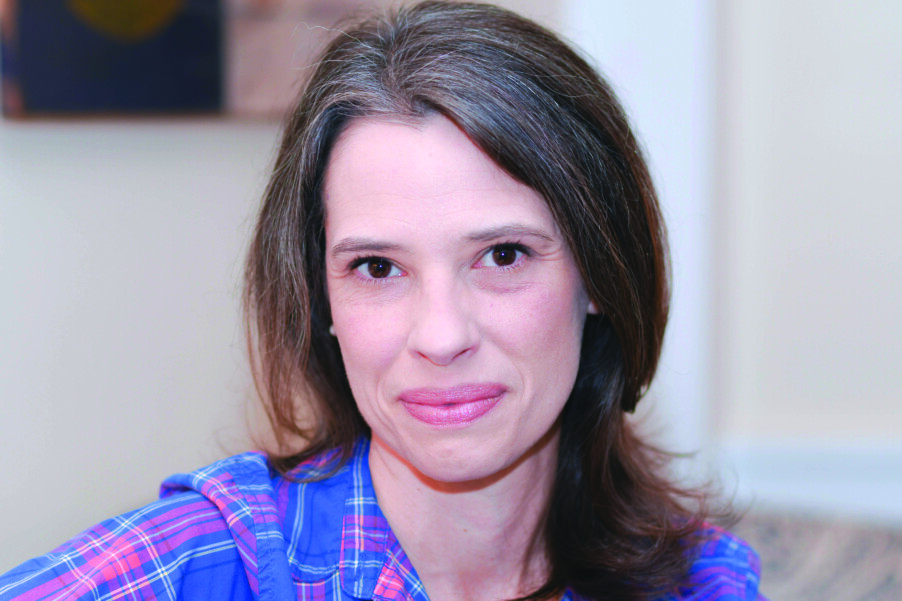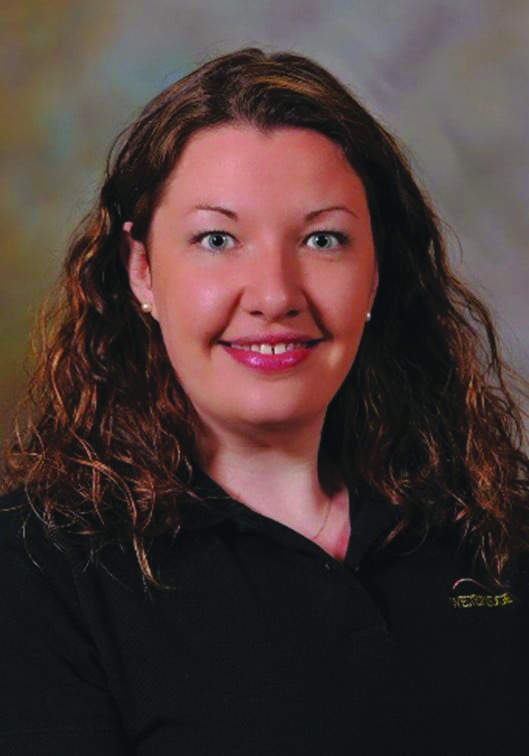Alan Frati of Derry is the co-owner and co-founder of Crack’d Kitchen & Coffee (327 S. Broadway, Salem, 212-1511, crackdkitchen.com), which opened its first New Hampshire location in his hometown of Salem in April 2021. Inspired by their love of breakfast sandwiches, Frati and business partner Danny Azzarello opened the first Crack’d Kitchen & Coffee in Andover, Mass., in 2019. The eatery is a fast casual concept specializing in locally roasted coffees, smoothies, bowls and eclectic breakfast options like loaded hash browns and egg sandwiches with creative toppings. A third location would later follow in Peabody, Mass., opening earlier this summer, in addition to a 20-foot food trailer known as The Yolkswagon — catch the trailer at a special Black Friday event at From the Barrel Brewing Co. (1 Corporate Park Drive, Unit 16, Derry) on Friday, Nov. 25, from 10 a.m. to 2 p.m.
What is your must-have kitchen item?
A good sharp knife is kind of like the cornerstone of any kitchen. … Even though we’re primarily a takeout restaurant, one of the things we were founded on is that we cook real food, and so we’re cutting up all of our vegetables, slicing bread, things like that, so you need a good knife.
What would you have for your last meal?
A really good steak. I like my steak medium rare, and I think I’ve got to do a prime cut cooked over some really nice charcoal or hardwood.
What is your favorite local restaurant?
I’ll give a shout out to my friends at a newer spot that opened up, Los Reyes [Street Tacos & More] over in Derry. They do some killer stuff over there, and they’re really good people.
What celebrity would you like to see eating in your restaurant?
I’d love to see my guy Bill Belichick come in and order. I think we would get a pretty big kick out of that.
What is your favorite thing on your menu?
Honestly, I think all of our breakfast sandwiches stick out. I love the Live Free or Die, which is one of our signature sandwiches, and we call it that because we get our bacon from up at North Country Smokehouse. [It has] our house-made ketchup, a sharp cheddar cheese and we always use 100 percent cage-free eggs, and that’s on a nice buttery soft brioche bun.
What is the biggest food trend in New Hampshire?
I think it’s the whole vegan and plant-based movement. I definitely see that way more now than I have in the past — people coming in and asking for egg substitutes, vegan cheeses, things like that.
What is your favorite thing to cook at home?
We’re those people that like to grill 12 months out of the year. We do a lot of grilling, everything from steaks and chicken to vegetables and starches. … We cook a lot of comfort food too. I have three kids now, so we’re not usually doing stuff that’s too fancy.
Maple turkey sausage
From the kitchen of Alan Frati of Crack’d Kitchen & Coffee
2 pounds ground turkey
1 teaspoon kosher salt
1 teaspoon black pepper
¼ teaspoon crushed red pepper flakes
¼ teaspoon ground sage
½ teaspoon onion powder
½ teaspoon paprika
2 Tablespoons maple syrup
In a mixing bowl, combine the maple syrup with all of the seasonings to create a paste. Add the ground turkey and mix thoroughly so that all the ingredients are well-incorporated. Form the turkey mix into 3-ounce patties and place on a parchment-lined baking sheet. Flatten into ½-inch thick circles. Bake at 350 degrees for 12 minutes, ensuring that the turkey is cooked through. Serve as is or sear-cook sausage in a cast iron pan for a more caramelized flavor.
Featured photo: Alan Frati, co-owner of Crack’d Kitchen & Coffee in Salem. Courtesy photo.

